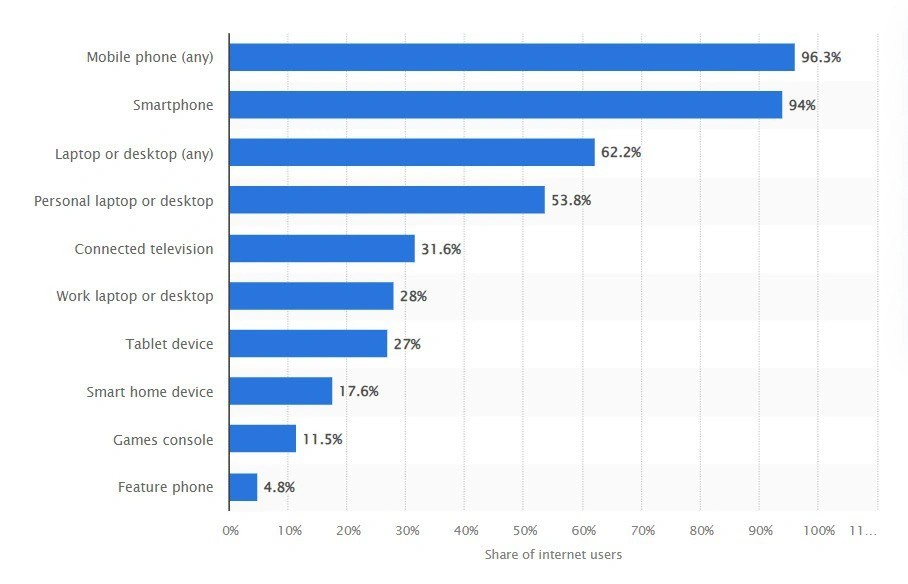
We, the Corpsoft Solutions team, are happy to share our partnership with entrepreneur Gianluca Ferruggia in developing the DesignRush platform, which was created in 2017.
Niche marketplaces are the future of e-commerce. Check this article to determine how to develop a perfect specialized marketplace for both sellers and vendors.
Tips And Trends To Build Successful Nishe Marketplaces
The e-commerce landscape is undergoing a seismic shift. Even after the 2020 peak, online sales are still thriving. However, people are beginning to look for more niche marketplaces where they can find goods for their specialized needs. As a business, you can find a not-so-popular yet promising niche to build the marketplace, gathering different vendors and earning passive income.
This isn’t just a trend for consumers; it’s a critical opportunity for businesses of all sizes. Are you a CEO, CTO, or entrepreneur looking to capitalize on the future of e-commerce? Take a delve into the world of niche marketplaces and define the tips that will help you to succeed.
What’s the Niche Digital Marketplace?
It’s an online marketplace that specializes in narrowly specified products. It can be a marketplace for fishermen that sells only things for those who like fishing or a marketplace for musicians where they can buy instruments, sound tech, and specialized books.
While huge marketplaces like Amazon or AliExpress have just the most popular goods for almost everything, niche marketplaces gather vendors who sell highly specialized products. If you need a vintage Gibson guitar from the 1990s, you won’t find it in general marketplaces. However, niche stores may have this hidden gem in their arsenal.
The Advantages of Niche Marketplace
Niche marketplaces offer several advantages over general marketplaces, making them a better choice in specific situations:
- They offer more focus and expertise, as they cater only to a specific audience with well-defined interests.
- Reduced competition, as each seller can take their sub-niche stronger community, leads to increased customer loyalty and trust.
- Higher quality products due to stricter quality control.
If you sell some specialized goods to a niche audience, the niche marketplace suits you more. If you sell general stuff (accessories, phone cases, etc.), you can try to become a vendor in both specialized and general marketplaces.
Here are some examples of niche e-commerce marketplaces:
- Etsy is for people who are looking for handmade crafts and vintage goods
- Chewy for pet owners
- Depop for fashionista preferring sustainable fashion
- StockX for sneakerhads
- Reverb for musicians
- ProperGuild is for those who are looking for advice from a local expert
The recent Oliver Wyman’s “Future of Retail” study tells us that e-commerce is the future of sales. The study forecasts an 11% growth rate for e-commerce, while digital marketplaces will face an incredible 30% boom. According to it, by the end of 2024, online marketplaces will rake in over 40% of global e-commerce revenue.
Tips on Building a Niche Marketplace
Building a successful online marketplace requires planning, strategy, and continuous improvement. This process may take weeks or even months, depending on your goals. We gather short main tips on how to start a niche B2C marketplace, to save you time:
- Find your niche. There is no sense in trying to launch your marketplace in an already overcrowded niche. So, find that one where competition is still possible.
- Determine the needs of the target audience. Segment their needs and focus on providing as much value as possible.
- Define your unique selling proposition. Ask yourself why people should try your marketplace instead of the rival’s. Use this as your competitive advantage.
- Start the developing process. Determine whether you want to build a niche store from scratch, use pre-built templates, or a combination of both.
- Prioritize user experience (UX). Design an intuitive and user-friendly interface for both buyers and sellers. Easy navigation, search functions, and clear product listings are crucial even for marketplaces for niche industries. Everyone loves intuitive web services.
- Integrate secure payment gateways. Ensure a safe and seamless transaction process for users with trusted payment partners.
- Focus on service security. Implement robust security measures to protect user data and financial information. It will act as one of the biggest niche competitive advantages since many businesses simply tend to forget about security.
- Excellent customer support: Provide responsive and helpful customer support to address issues and build user loyalty.
- Implement advanced content marketing. Use everything you can: blog posts on your website, landing pages, social media, and email marketing. SEO still works, so your content should be SEO-centered even today.
- Provide mobile optimization. According to Statista, 90% + of users access the internet from mobile phones, while only 62% use laptops.

Source: Statista
Key Trends Defining The Future Of Niche Marketplaces
A digital marketplace is the future of e-commerce. To ensure that you’ll achieve maximum success with a fair budget, figure out the market niches that you can take. Implement some of the hottest trends to stand out from the crowd.
We gather 6 main trends that will be relevant even in 2025-2026:
- Hyper-personalization and AI-powered recommendations
- Rise of voice commerce and conversational interfaces
- Blockchain technology for secure transactions and product provenance
- Focus on sustainability and ethical sourcing
- Augmented reality (AR) for product visualization
Hyper-personalization and AI-powered recommendations
We will see how more and more businesses will leverage artificial intelligence (AI) to personalize the shopping experience. A niche store is not the exception. AI tools will analyze user behavior and purchase history to recommend relevant products, creating a more curated shopping experience. It can lead to increased customer satisfaction and loyalty.
Rise of voice commerce and conversational interfaces
Voice assistants like Google Assistant, Apple Siri, and Amazon Alexa are becoming increasingly popular. Digital marketplaces will integrate voice search functionalities, allowing users to search for products and complete purchases using voice commands.
AI-powered conversational chatbots will provide high-quality support indistinguishable from real agents. That way, even the smallest niche brand with just a few people will be available for communication 24/7.
Blockchain technology for secure transactions and product provenance
Blockchain, the technology behind cryptocurrencies, can offer secure and transparent transaction systems. There is no way to hack blockchain with current technologies. So, you can be sure that the info that you place in the blockchain will remain there forever.
Some high-tech niche industries will use the mix of traditional and cloud storage with blockchain-disrupted storage. In a niche store where authenticity matters (e.g., art, collectibles), blockchain can verify product provenance, giving buyers confidence.
Focus on sustainability and ethical sourcing
Consumers are becoming more environmentally conscious. So, niche industries will cater to this request by offering eco-friendly products and highlighting sustainable practices. It applies to any business: from specialized hobby shops to clothes marketplaces.
Augmented reality (AR) for product visualization
AR tools allow users to virtually try on clothes, makeup, and haircuts. These tools can visualize furniture placement in their homes or see how the artwork would look on their walls.
Increasing usage of AR tools will lead to increased confidence in online purchases. It will also ease the niche research for your potential clients. They don’t need to purchase a product or go to a physical space to determine whether your product fits them.
Wrapping up
The future of e-commerce is brimming with opportunity, and niche marketplaces are poised to take the lead in this race. While general marketplaces have their leaders, there are still many niches without that much competition. Conduct your niche search to find out whether it’s your case.
If you want to save time on research, development, and marketing, contact the Corpsoft.io team. We will help you build the marketplace of your dreams. Don’t miss out on this exciting trend – book a consultation today and turn your vision into reality!
Subscribe to our blog

